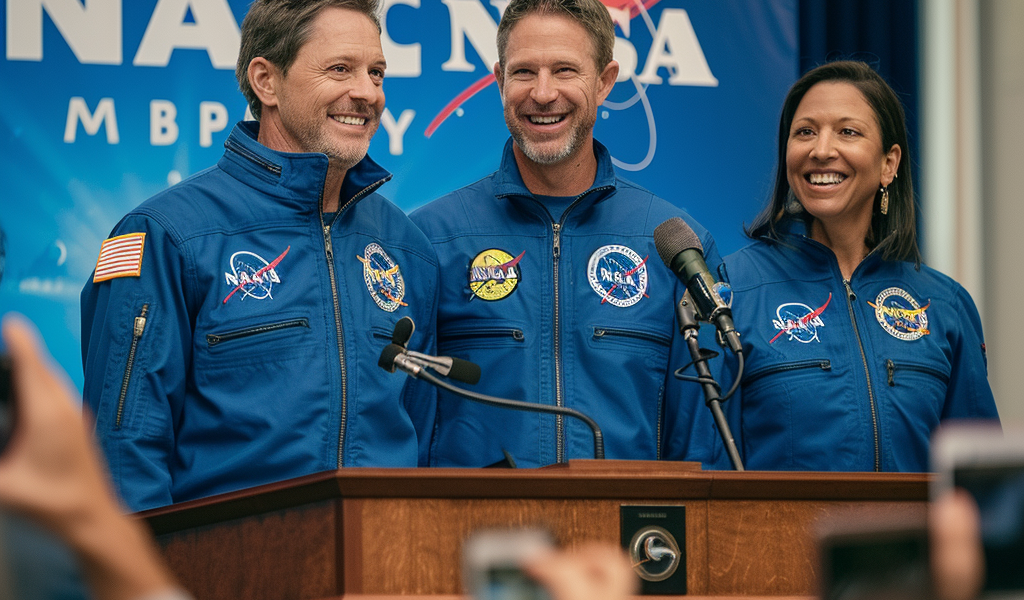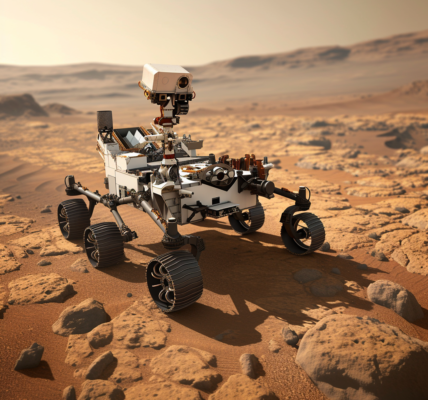In a recent press conference held at NASA headquarters in Houston, three astronauts who returned from the International Space Station (ISS) discussed their health following an unexpected hospital visit after their lengthy mission. Michael Barrett, Matthew Dominick, and Jeanette Epps addressed the media nearly two weeks after their splashdown in the Gulf of Mexico on October 25, 2024, after spending an impressive 235 days in space.
Michael Barrett, the pilot of the crew, expressed that all three astronauts are in good health but refrained from providing specific details about their hospital visit, citing medical privacy laws. He emphasized that the intricacies of space flight are still not fully understood, stating, “Space flight is still something we don’t fully understand. We’re finding things that we don’t expect sometimes – this was one of those times.” Barrett, who is also a medical doctor, highlighted the importance of understanding how human bodies adapt to the rigors of space travel.
During the mission, the crew experienced various challenges that come with extended space travel, leading to the precautionary decision for them to be taken to Ascension Sacred Heart Hospital in Pensacola, Florida. NASA noted that this step was taken out of an abundance of caution following their return to Earth in a SpaceX capsule.
While Barrett, Dominick, and Epps were present at the press conference, the fourth crew member, Russian cosmonaut Alexander Grebenkin, was notably absent. NASA had previously reported that one member of the crew was briefly detained at the hospital but was subsequently released in good health, allowing them to continue their post-flight reconditioning.
The astronauts reflected on their first days back on Earth, sharing insights into the physical sensations they experienced after returning from the microgravity environment of space. Barrett mentioned the expected feelings of disorientation and dizziness but also noted the surprising discomfort associated with simple tasks, such as sitting in a hard chair. This highlights the challenges astronauts face when readapting to Earth’s gravity after long-duration missions.
As NASA continues to investigate the circumstances surrounding the hospital visit, the agency remains focused on understanding the complexities of human spaceflight. Barrett stated, “In the fullness of time, we will allow this to come out,” indicating that more information may be disclosed as the situation is further analyzed.
The return of these astronauts marks a significant milestone in human space exploration, as they contribute to the ongoing research into the effects of prolonged space travel on the human body. NASA’s commitment to ensuring the safety and health of its astronauts remains paramount, as they continue to push the boundaries of space exploration.
Looking ahead, NASA is preparing for future missions, including sending astronauts back into orbit with a SpaceX crew in February. The agency is also working on the development of the Boeing Starliner, which aims to provide additional transportation options for crewed missions to the ISS.
As the space agency delves deeper into understanding the health implications of extended space missions, the experiences of Barrett, Dominick, and Epps will undoubtedly contribute valuable insights to the field of space medicine. Their journey serves as a reminder of the complexities and challenges faced by astronauts as they venture beyond our planet.





